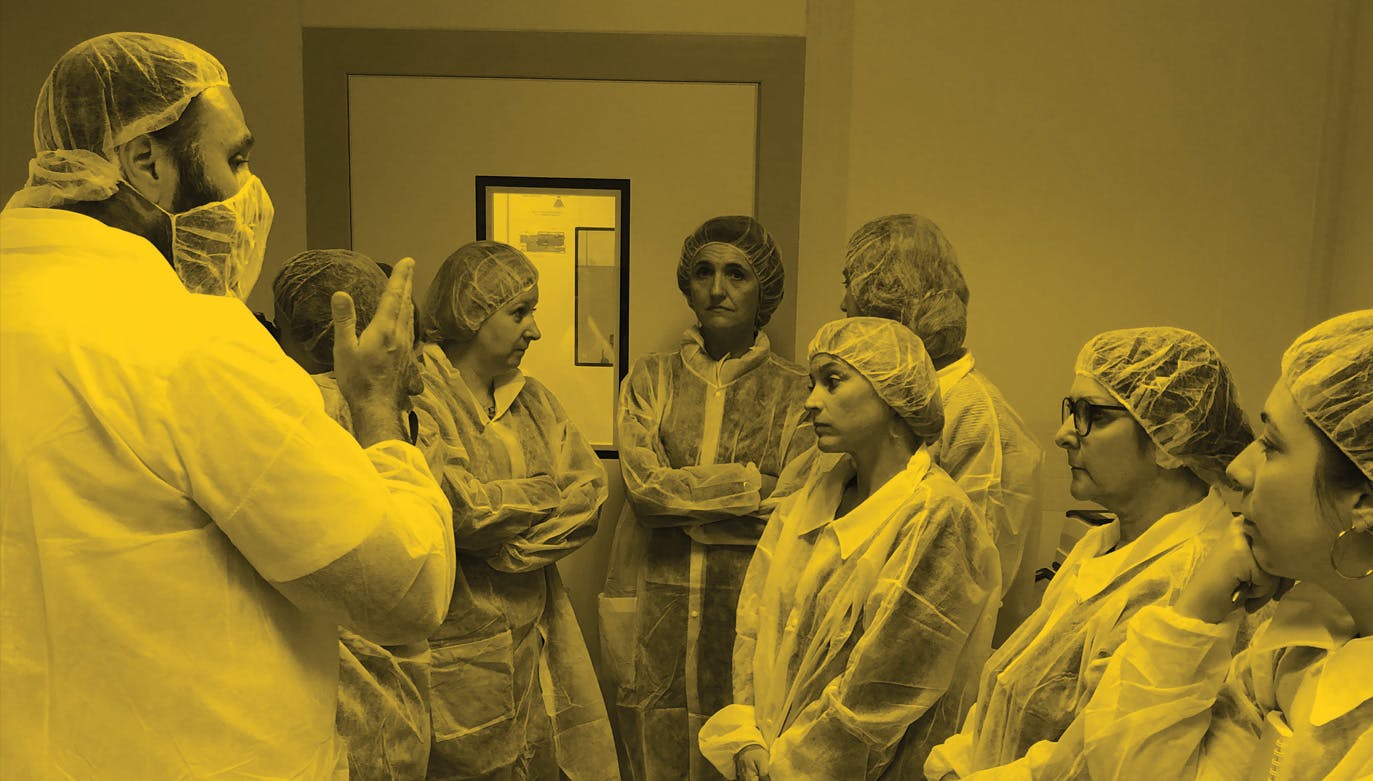MedTech Week Magazine 2019 At a glance
Highlights from the 5th Edition of the Award-Winning MedTech Week Magazine
2,5
million
views
I am particularly pleased to see so many examples of companies reaching out to their communities and engaging with employees – after all, medtech is really about people rather than technology.

22
Countries
Engaged
51
Members
Involved
55
External
Partners
3,300
new fans & followers
37,000
website visits
140,000
video views
Bringing Sound & Vision to the message
Articles

Guessing games
Fun video series saw kids trying to figure out what medical devices do

Delivering value that’s valued
A series of blogs, videos and case studies offered a global view of value in healthcare

Paying for digital health
Digital technologies could transform patient care – but how are they reimbursed?

Patient Safety First
National associations help companies deliver products of the highest quality

Safer sleep
Remote monitoring technology is revolutionising sleep apnoea treatment

Demystifying nuclear medicine
Press trip offers journalists insights on the latest in PET/MRI technology

A job for life
Careers in medtech offer a rewarding way to help transform and save lives every day

Fighting antimicrobial resistance (AMR)
Diagnostic tests are the invisible heroes of the healthcare system. Between 60 and 70% of all medical decisions are based on the results of diagnostic tests, but medical biology represents only 2-3% of healthcare expenditures.

Career choices
Apprenticeship Night was a chance for companies to engage with young people

When plastic heals
Translating material properties into life-saving products
Perspectives

New role for Clinical Research Organisations
Two new EU Regulations will require the collection and analysis of more data during clinical investigations

Green is the new black
Climate action is rightfully gaining space on the policy agenda. Healthcare is part of the problem and must become part of the solution.

Improving the lives of people living with diabetes
It is incredible when I think that nearly 100 years have passed since the discovery of insulin. Since then, insulin has saved the lives of millions of people living with diabetes around the world.

What do patients want?
Patients don’t care about technology – they care about the quality of life

Career inspiration: My journey to biomedical engineering
At the age of seventeen, I was good at maths and sciences, but I did not know what to study after secondary school.

Are you ready for Eudamed?
One of the biggest changes on the healthcare horizon will be new EU requirements for product information. If you are not already preparing for this, start now – the clock is ticking.

Changing health, changing lives
Our sector has changed a great deal in the last decade, but there is much more innovation to come – notably in customisation and data.

Incontinence: Breaking the taboo
The condition can be treated, often cured, and always managed

‘Will it make the boat go faster?’
We need to work in partnership with healthcare providers to understand the true value of technologies.

The future of medicine is personal
We must all play our part in embedding personalised medicine into Europe’s healthcare systems

Paying for digital health
Digital technologies could transform patient care – but how are they reimbursed?
From remote monitoring in cardiovascular care and diabetes to collecting patient reported measures of pain and mental health, mobile technologies have the power to enhance the patient experience and support doctors in their diagnostic decision making. They may even help boost the sustainability of our health system by making services more efficient and bringing them closer to the patient.
The rapid pace of innovation in this field is promising, with mobile health apps receiving the CE mark and becoming available as medical devices. The question is: how can these new products be paid for in a system built to fund medical interventions rather than health outcomes and hardware rather than software & services? And how can patients and/or doctors find their way in the tsunami of health and wellbeing apps that arise on the different app platforms by Google, Apple, Microsoft and other tech giants.
To tackle these issues and to support the integration of mHealth applications in Belgian healthcare, the Federal Belgian Government took the initiative in 2018 – after running some mhealth pilot projects successfully - to create a platform called mHealthBelgium. This has been implemented and coordinated by beMedTech (sector federation of industry of medical technologies) & Agoria (Belgium’s trade association representing companies active in the technology sector).
This one-stop-shop platform (www.mhealthbelgium.be) centralises all relevant, necessary and validated app information for patients, healthcare professionals and healthcare institutions in 3 languages (Dutch, French, English). Visitors can easily find information on CE-marking, GDPR compliance, compliance with security and authentication rules and if and how the app is financed. The platform is constructed around a validation pyramid with 3 levels. An app always enters at the lower level M1 and can climb in the hierarchy via M2 towards the top level M3. By end of 2019, a framework (including templates and timelines) will exist to request reimbursement for a mobile health application.
During MedTechWeek, beMedtech and MedTech Europe explained how the reimbursement of digital health is advancing in Belgium and what the ‘validation pyramid’ of mHealthBelgium is. According to the mHealthBelgium ‘validation pyramid’, an app qualifying for reimbursement within the healthcare system should be a medical device, be safely connected and have clinical evidence supporting its use. The documents were promoted on beMedtech social media accounts and newsletter, while they are also available on the MedTechWeek website.
Several other Member States – and the European Commission itself – are actively working on ways to accelerate the development and uptake of digital health solutions.
In France, health authorities have added the first medical software device to the list of products and services that are reimbursable by social security. The software is used to detect relapse and complications in lung cancer patients. In Germany, the government has published a draft ‘digital care’ law which, if enacted, would make certain digital health apps eligible for reimbursement by health insurers.
Meanwhile, the European Commission’s eHealth stakeholder group, of which MedTech Europe is a member, has published a paper with guiding principles for national authorities for financing digital health solutions. Could 2020 be the year digital health takes off?







